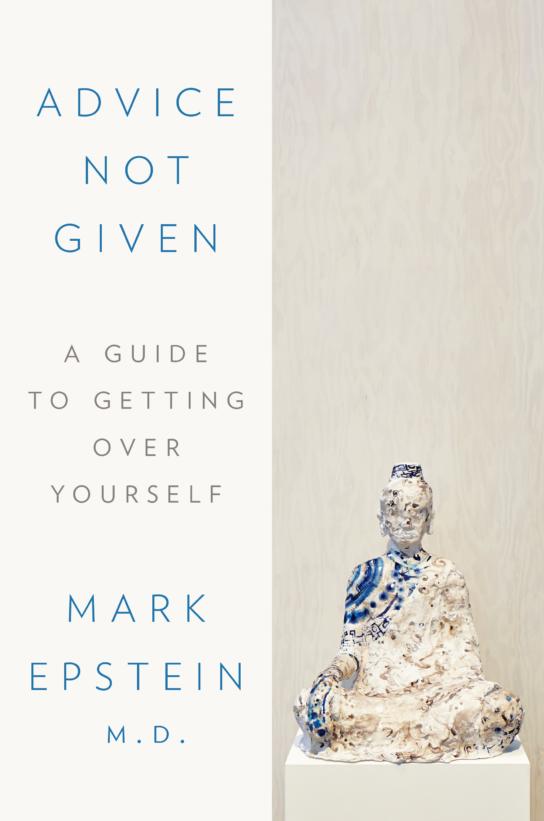Get Over Yourself
Mark Epstein reflects on how psychiatry and Buddhism have helped him get beyond self-preoccupation.
By Mark EpsteinSuzuki Roshi, the founder of the San Francisco Zen Center and one of the first ambassadors of Buddhism to the United States, had a very helpful way of describing the relief that comes from getting over yourself. He used the expression “mind waves” to describe the turmoil of the ego’s struggle with everyday life. Waves, he would always insist, are part of the ocean. If you are trying to find the peace of the ocean by eliminating the waves, you will never succeed. But if you learn to see the waves as part of the whole, to not be bothered by the ego’s endless fluctuations, your sense of yourself as cut off, separate, less than, or unworthy will shift. This is a very particular way of dealing with the human sense of personal inadequacy, one that is strikingly different from the Western psychotherapeutic approach that seeks to uncover neurotic emotional patterns and excavate early childhood experience. In the Buddhist system, change comes by learning to shift one’s perspective. Self-preoccupation, after enough practice, gives way to something more open. The ego’s instinctive favoring of itself is eroded by a sense of the infinite.
 Suzuki’s point is that, know it or not, we are already equipped to meet whatever befalls us. Life’s challenges are challenging, but there is room for faith, for confidence, even for optimism. The Western approach, seeking to strengthen the ego, focuses exclusively on the wave. Suzuki was always favoring the ocean. Buddhism often counsels meditation practice as the primary vehicle for awakening this shift in perspective, but at some point it becomes clear what is meant by the word “practice.” Meditation is not an end in itself. It is not a quick fix. It is practice for life.
Suzuki’s point is that, know it or not, we are already equipped to meet whatever befalls us. Life’s challenges are challenging, but there is room for faith, for confidence, even for optimism. The Western approach, seeking to strengthen the ego, focuses exclusively on the wave. Suzuki was always favoring the ocean. Buddhism often counsels meditation practice as the primary vehicle for awakening this shift in perspective, but at some point it becomes clear what is meant by the word “practice.” Meditation is not an end in itself. It is not a quick fix. It is practice for life.
After forty-plus years, I can say for sure that I am not cured, nor am I enlightened. People continue to complain at times about my coldness, my aloofness, and my irritability. I still have to deal with the various kinds of suffering that plague me, with my own tensions and anxieties, with my own need to be right and my own need to be liked, issues that have been with me for as long as I can remember. And now, in my sixties, there are things to face I have never experienced previously. But I do have something I did not have before. It is not exactly inner peace. Nor am I really any happier than I ever was. Happiness, to me, seems to have a set point, like a thermostat, around which we hover, no matter what we do. But I now have the means, thanks to both Buddhism and psychotherapy, to face whatever life throws at me.
While in many ways I have remained the same—my personality is much as it ever was—I am not the prisoner of my ego that I once was. When the most difficult aspects of my character surface, I know there is something I can do to not be at their mercy. While my three-year-old, seven-year-old, or twelve-year-old selves may not have given up the ghost, I do not have to be their helpless victim. Years of engagement with both psychiatry and Buddhism have shown me where I have control over my own mind and where I do not. And I do not have to be cured to be hopeful. It is this optimism that I most want to make possible for my patients.
Buddhism is all about releasing oneself from the unnecessary constraints of the ego. Every aspect of the Eightfold Path is a counterweight to selfish preoccupation. But the Buddhist reprieve is accomplished not by leapfrogging over the ego’s needs or demands, but by zeroing in on them: acknowledging and accepting them while learning to hold them with a lighter, more questioning, and more forgiving touch.
As I bring Buddhism more directly into my clinical work, this is the aspect I find most helpful. From my own experience, I know that even the most disturbing material loses its hold when successfully observed without attachment or aversion. The more I can be present with the entire range of my own and my patients’ thoughts and feelings, the less we have to be run out of the room by them. In empowering the mind’s ability to observe dispassionately, the Buddha found a hidden mental resource, one that a successful psychotherapy also taps. In working with this understanding, I know that in encouraging my patients to be real with themselves I can also help them to be free.
What I try to convey to my patients is that they can meet the challenges life throws at them by changing the way they relate to them. This is advice I now feel free to offer. The goal is to meet the challenges with equanimity, not to make them go away. When Suzuki Roshi said not to be bothered by the waves’ fluctuations, he meant it. And one thing we can say for sure. Life gives us endless opportunity to practice. Mostly we fail. Who can say they are not bothered by anything, really? But when we make the effort, the results can be astonishing. In an insecure world, we can become our own refuge. Our egos do not have to have the last word.
Mark Epstein is a psychiatrist in private practice in New York City and the author of a number of books about the interface of Buddhism and psychotherapy, including The Trauma of Everyday Life, Thoughts without a Thinker, Going to Pieces without Falling Apart, and, most recently, Advice Not Given.
Adapted from Advice Not Given: A Guide to Getting Over Yourself by Mark Epstein, published by Penguin Press, an imprint of Penguin Publishing Group, a division of Penguin Random House, LLC. Copyright © 2018 by Mark Epstein.
Photo by Noah Silliman on Unsplash
